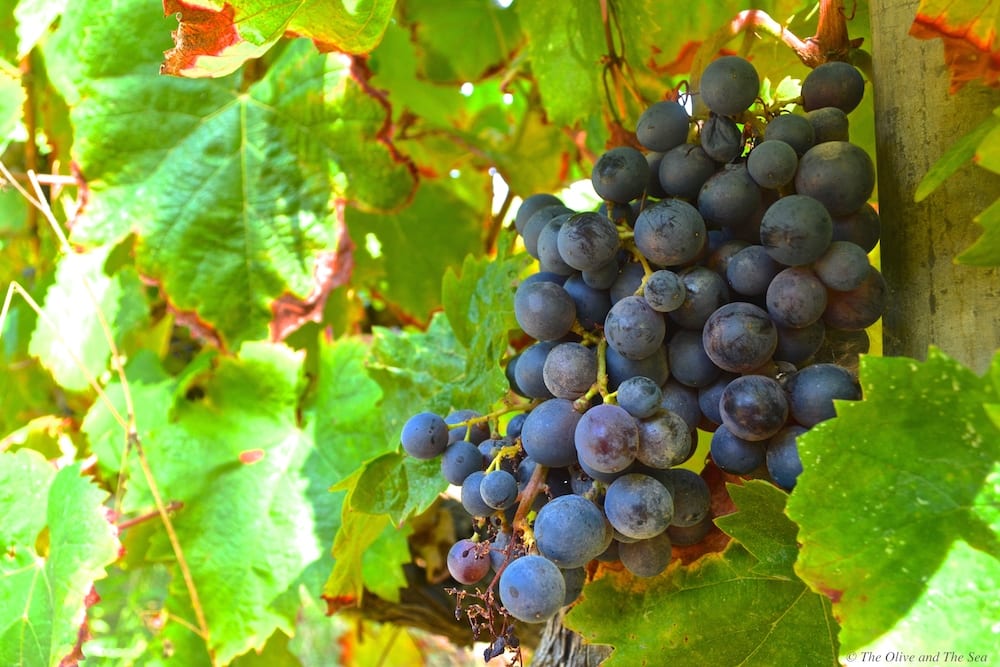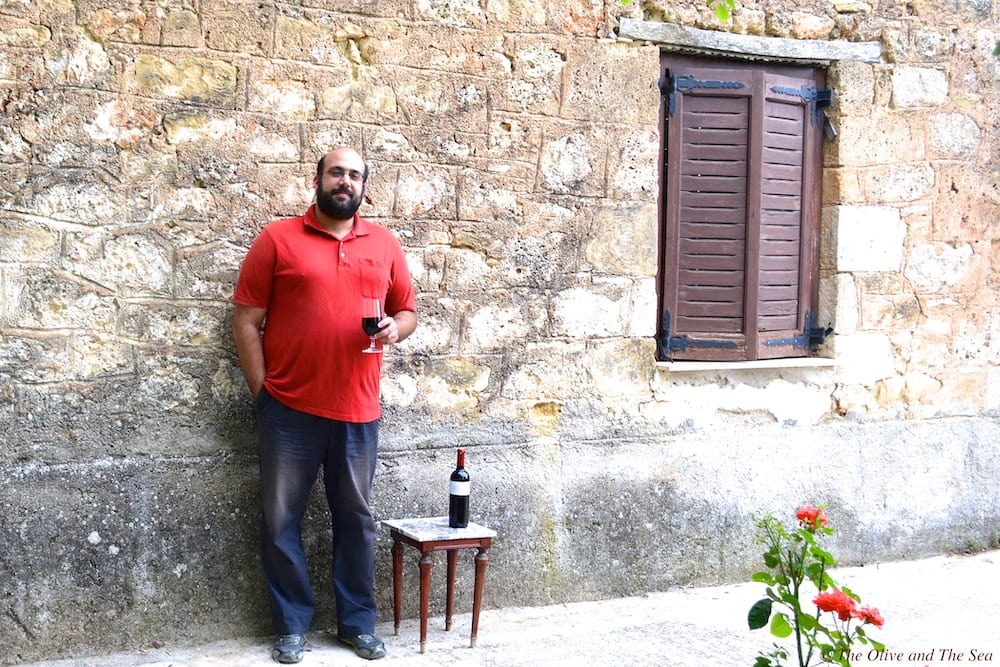Greek Wines – Agiorgitiko in Souli

Our time in Greece is filled with rest and relaxation as well as exploring foods produced in the region, such as artisanal olive oil, florina peppers, and mountain tea. There is a long list of locally produced foods that are difficult, if not impossible, to find in the United States. This year, I set out to learn more about Greek wines. While Greece has established its reputation as one of the world’s leading olive oil producers, it isn’t well known for its wines.
Last summer I tasted a Greek rosé and found it to be one of the most enjoyable rosés I had ever had. Intrigued by my rosé experience, I returned to the US and spent the past year researching it further. The first thing I learned is that Greece produces wine with grapes indigenous and unique to its region, one of these being the Agiorgitiko.
The grape, from which the wine derives its name, is small, dense, with a dark thick skin. It is used to make red and rosé wines and was originally named Nemeas Black; Nemeas for the region of Nemea in the Peloponnese, and Black due to its very dark color. The name was eventually changed to Agiorgitiko, literally meaning Saint George’s grape, due to the role that the small local church of Saint George played in designating the grape’s region.

With its origins in Nemea, the grape’s wine is steeped in legend. It is sometimes referred to as the “Blood of Hercules” based on Greek mythology’s tale of Hercules and the slaying of the Nemean lion. It is also said to have been a favorite wine of King Agamemnon, who led the Greeks during the Trojan War (remember that burly looking guy in the movie Troy?).
The second thing I learned is that Greek wines in the United States are scarce. During conversations with various wine shop owners, I learned that the regulations surrounding the import and distribution of wines can be quite complex and costly. As a result, unless the market demand warrants the import of a particular wine, bottle shop owners are reluctant to stock it on their shelves. With respect to Greek wines, demand may increase in the coming years as it has already caught the attention of world renowned sommeliers. Back in 2011, Alexander LaPratt of Atrium Dumbo, was reported by the Wall Street Journal as taking an interest in Agiorgitiko and adding some to his collection.
My next objective was to map out wineries that we could visit during our trip. Luck would have it that our summer itinerary allowed us to travel through Nemea and visit the Georgiou Winery, newly launched in the hillside village of Souli.
Upon arriving, we were greeted by George Georgiou and his 93 year old grandmother at their hundred year old homestead, which also serves as the family winery. True to Greek hospitality, our visit began with a wonderful meal of oven roasted chicken with potatoes, Greek salad, and some local beer.
Georgiou’s story isn’t unlike many young Greeks looking to build a future in a country fraught with economic turmoil. Having graduated with an MBA from San Jose State University, Georgiou returned to Athens in 2009 to pursue a career in Greece’s corporate world. After several years of professional dissatisfaction, he concluded that the opportunities available in the country’s capital were not what he was looking for. That’s when, during a visit to his family’s ancestral village of Souli, the idea came to him: resurrect the family’s winery. And so, after attending the Agricultural University of Athens and obtaining his certification in enology, he began production with a first vintage in 2012.

After lunch, Georgiou filled two glasses from a barrel. As we savored the ruby red wine, he shared his vision for the winery. With current production around a thousand bottles, he hopes to increase and diversify with both a single grape agiorgitiko as well as some blends. Listening to Georgiou, one gains an appreciation for the time and patience that goes into developing a good wine. Lessons learned from one year’s vintage are applied to the next, and the success of each harvest can only be measured months later, after the grape must has fully fermented.
The 2014 vintage has a slight effervescence, the result of a small amount of sugar remaining in the wine at the time of bottling. While technically considered a flaw in wine making, the effervescence gave the wine a unique and pleasant character. Georgiou explained that one of the appeals of agiorgitiko is its drinkability both as a young and aged wine, something that is particularly important to those looking to invest in wine.
Our day in Souli was a wonderful one; the graciousness of our host, the depth of the place’s history, and the feeling that we were witnessing a gem in the making. Had we not been restricted by the drive ahead, we gladly would have indulged in a few more glasses. Instead, we purchased several bottles. The wine may not last a lifetime but our memories certainly will.

